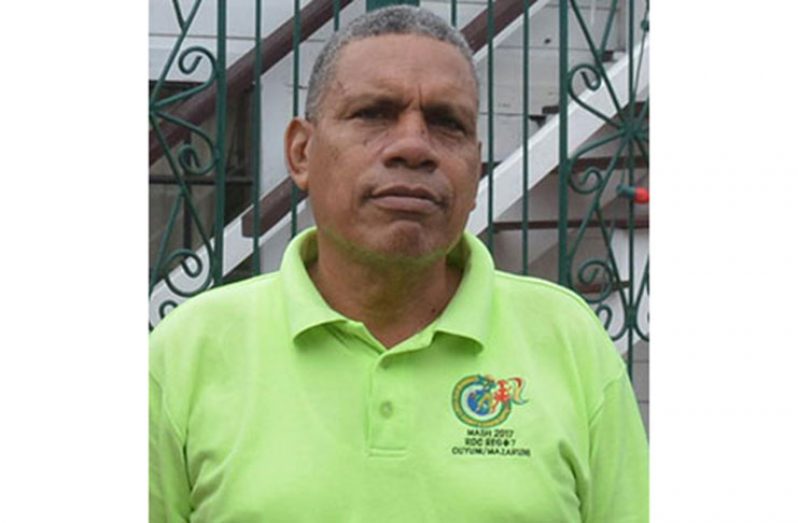…mayor credits decentralisation of government services
GORDON Bradford, Regional Chairman for Region Seven (Cuyuni-Mazaruni) says the region has seen much development in the education and health sectors over the past few years thanks to the decentralisation of government services.
As a result, there has been the deployment of resident doctors being placed in many villages and a number of new primary schools set to be commissioned shortly.
Bradford noted that though most persons often look to the township of Bartica when they think of development taking place in Cuyuni-Mazaruni, much development is also taking place in several other parts of the Region.
“Indeed, Bartica is moving places, lots of developments taking place, but as we always say, Bartica is not Region Seven alone, Region Seven is the second largest region in Guyana and development is all across the Region,” Bradford informed.
Bradford says that the Region is still vigorously pursuing the decentralization to see several other essential services, which in the past were centralized in the city, being brought to the Region.
“Our vision in the Region is to take services, whether education, health infrastructure, closer to the residents and so we are achieving that bit by bit, even though we have a long way to go still,” Bradford explained.
Bradford noted that it is the decentralisation of services that has seen wider medical coverage in villages across the Region. “If you go into the Upper Mazaruni right now, you would find a doctor in almost every community and that wasn’t there before,” he pointed out.
“Our vision is to take healthcare delivery, infrastructure, sports, recreational facilities, you name it, to the people rather than have then travel long distances and pay exorbitant cost to seek these services. We are moving closer to achieving these services. Yes, we still have a long way to go, but with that vision and with the support from central government, Ministry of Communities and all the other Ministries, we’re getting there,” Bradford said.
Bradford referenced a recent appeal by President David Granger for there to eventually be a top secondary school in each region, as something he would truly like to become a realisation in Cuyuni Mazaruni.
“I heard him talk about a top secondary school in each region, do you know what that would mean in terms of the development of our human resource, and young people? At present, young people have to leave every community that they live in and travel to the coastland to have such education. Now, with that vision, I will work towards that so we can have a top-level secondary school that can match education any part of this country, so our students must have it right in their community,” Bradford said.
New primary schools are also set to be commissioned shortly in Paruima, Kamarang and Imbamadai.
Since 2015, central government has put much focus on a decentralization strategy, taking essential services to each respective administrative region. This saw the government bringing about the return of the local government system, giving more power to citizens to have a say in the development of their respective communities.
He related that the Region’s hope is to see the developments in education and health replicated in other areas, including sports. “He [the president] spoke years ago about stadiums for every region. When we achieve these things we would be able to compete with others on the coastland because right now the playing field is not that level, and so when we read about selection for cricket, football, or athletics, sometimes 95 per-cent are from the coastland and our young people are not given that opportunity to showcase their potential. So I think we are headed in the right direction,” he noted.



.jpg)








